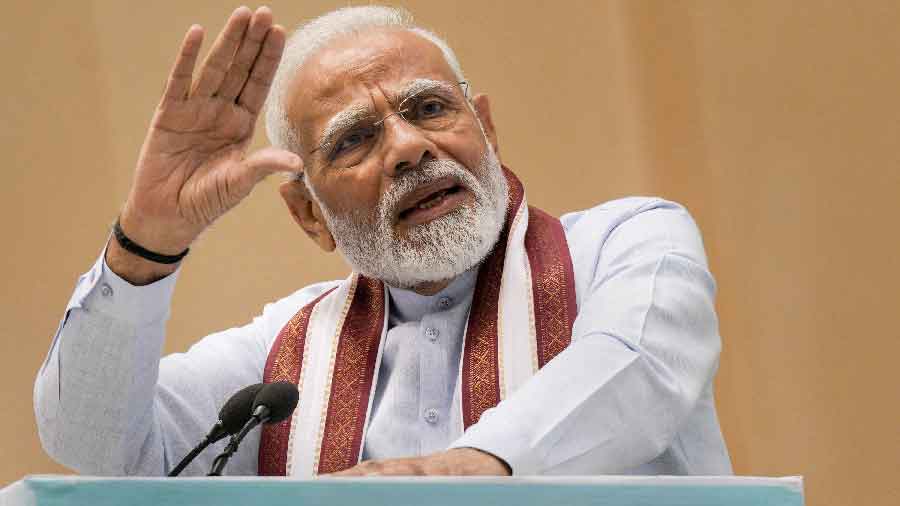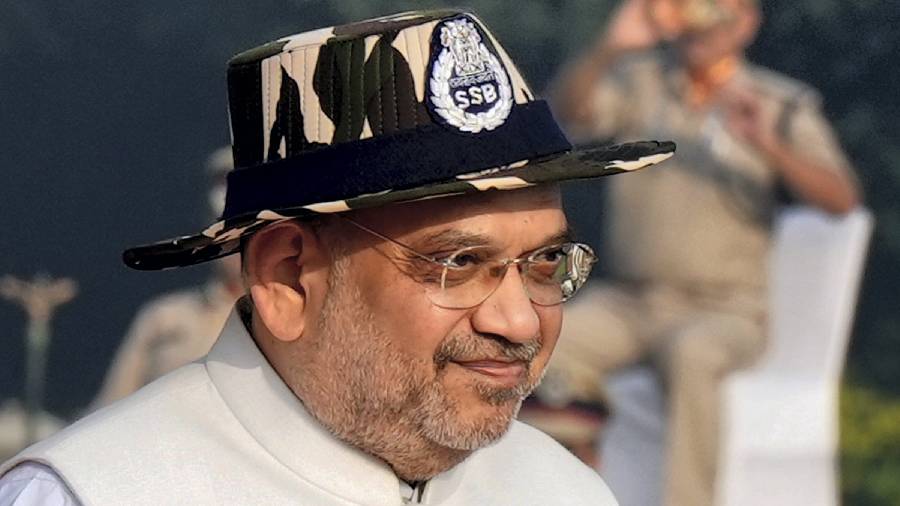The Centre has asked the security forces to identify and crack down on the urban network of Maoist strategists and their supporters across the country, sources in the security establishment said on Monday and suggested that some NGOs and civil rights organisations might come under the scanner.
The latest intelligence reports, a security official attached to the Union home ministry said, suggest that several “urban” Maoists and their supporters are active in multiple cities and have been providing support to underground rebels.
“The report has highlighted the presence of urban Maoists in several cities who have been providing logistical support to underground Maoists. In the wake of the recent report, the Union home ministry has asked security forces to identify and crack down on such ‘urban Naxals’ and their supporters,” the security official told The Telegraph.
“Urban Naxals” is a phrase coined by the Right-wing, covering in its sweep dissenters and some other critics of the Narendra Modi government. When the suspension bridge collapsed in Gujarat and 135 people were killed last week, unsubstantiated attempts were made to blame “urban Naxals”.
Quoting from the intelligence report, a home ministry official said it cited how some front organisations of the Maoists were functioning in some cities.
“Such frontal organisations function in the garb of NGOs and civil rights organisations and provide support to the armed struggle in the jungles. They recruit educated youths as supporters of the movement and play the role of ideologues,” the official said.
“Security agencies have been asked to launch coordinated operations with the help of state police forces against the overground Maoist strategists and supporters,” another security official said.
On October 28, Prime Minister Narendra Modi, while addressing the first brainstorming session of state home ministers and senior police officers, had stressed the need to root out all forms of “Naxalism”, whether “the ones with guns or the ones with pens”.
Modi had said: “It is the need of the hour to come together and handle the situation. Every form of Naxalism — be it the ones with guns or the ones with pens — Naxals have to be uprooted to prevent them from misleading the youth of the country.”
The reference to “Naxals with pens” had triggered concern among civil rights activists and critics of the government whether it would be misconstrued to equate dissenters with extremists.
Many critics of the Modi government, such as the Elgaar Parishad accused, have been branded “anti-national” and “urban Naxals” and jailed on charges of links with Maoist groups and an alleged ultra-Left plot to assassinate the Prime Minister. Their arrests in 2018 had triggered outrage and condemnation. Many civil rights groups and lawyers had called the action a brutal attack on democratic rights. Later, many students and other youngsters who protested against the Citizenship (Amendment) Act and the National Register of Citizens too were jailed under an anti-terror law on the charge of inciting riots.











